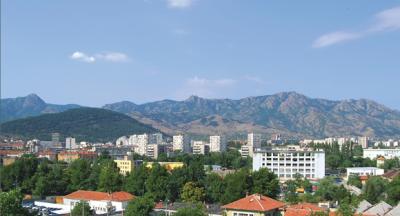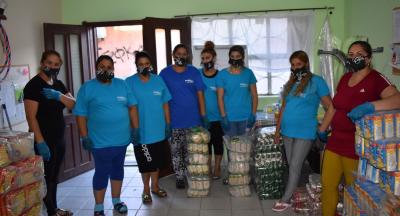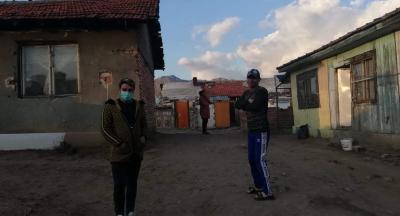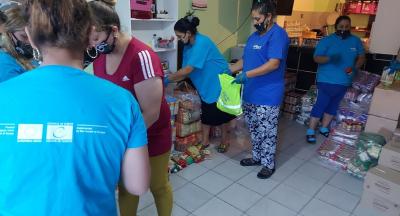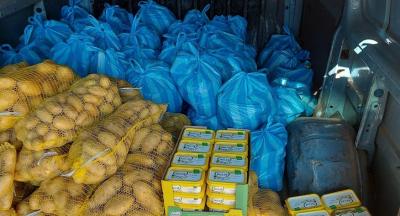Sliven
*Disclaimer: The information and views set out in this page do not necessarily reflect the official opinion of the Council of Europe and/or the European Commission. Neither the Council of Europe, the European Commission nor any person acting on their behalf may be held responsible for the use which may be made of the information contained therein.
The municipality of Sliven with a population of 125.300 is located 300 km away from Sofia in the South-Eastern region of Bulgaria. The majority of the population live it its two major cities where the majority of people in the municipality live, Sliven also has an additional 43 surrounding villages.
The manufacturing industry continues to be dominant for the regional economy of the municipality and this industry employs 34.7% of the local workforce (according to 2010 figures). The Roma community represent about 20 % of the population and largely live in two city of Sliven neighbourhoods, Nadezhda and Nikola Kotchev. Roma can also be found in 21 of the surrounding villages, where they account for anywhere between 1-% to 60% of the village population.
Located in an industrial zone, Nadezhda is in the most disadvantaged area, this area comprises of up to 90% illegal dwellings. A high unemployment rate prevails in the area. Additional challenges for Nadezhda Roma include a low level of education (which includes a lack of preschool education), a high number of early marriages, and a lack of access to adequate health services. Last but not least, Roma in Sliven are also faced with widespread discrimination.
The ROMACT Process
With the signature of the Mayor on the 28 October 2013, Sliven joined ROMACT.
The representatives of the municipality together with members of the CAGs identified and agreed on a variety of priorities which are addressed in a Joint Action Plan that includes the following measures:
- * Constructing a Community Centre within the Kindergarten in the Nadezhda neighbourhood;
- * Guaranteeing the right of equal access to quality education through the integration of Roma children and students in ethnically mixed kindergartens and schools;
- * Reducing child mortality;
- * Improving health care for infants and preschool children;
- * Improving prevention activities among the Roma population;
- * Improving access to health services;
- * Increasing health awareness and information amongst Roma population;
- * Establishing a centre for outpatient health care and health services within the district kindergarten of Nadezhda;
- * Improving housing conditions, including improvements to the necessary infrastructure surrounding the housing;
- * Providing Roma access to the labour market and to various tools and initiatives for self-employment;
- * Training and retraining of unemployed Roma and employed Roma to meet the skills needed for the local labour market;
- * Providing Specific mechanisms to achieve sustainable employment opportunities for working age Roma through advocacy and relationship building with representatives of employers, trade unions, municipalities and organizations of the Roma community;
- * Improving the efficiency of the police to address multi-ethnic environment needs in compliance with the standards on human rights;
- * Improving the efficiency of the Local Commission for Fighting Anti-Social Behaviour with specific regard for children in multicultural environments.
- * Achieving sustainable results in community cultural integration;
- * Preserving developing and promoting the culture of the Roma as part of the wider Bulgarian national culture and creating conditions for equal access of Roma to public cultural life on a variety of levels;
- * Establishing a Cultural Centre – “Unifying Centre for Cultural and Social Integration of Roma in the Local Community;
- * Raising the educational level of ethnic minority children and students.
- * Enhancing Roma participation in school life and working to establish acceptance of Roma parents to the educational process.
The Joint Action Plan was adopted by the Local Council on 10 December 2014.
Additionally to what was selected for implementation through the Joint Action Plan, some initiatives were already approved by the municipality and their implementation involved the members of the CAG at different levels, the actions taken were:
- - Destruction of an illegal dumpsite in Hope, the site was then developed as a playground;
- - Transportation of Roma children to address school desegregation with children travelling from Nadezhda to another area to attend school;
- The municipality also provided the CAG in Nadezhda with meeting premises in order to facilitate its work.
In November 2015, a new municipal team was elected in Sliven and the decision was taken to continue to implement ROMACT. The programme was officially closed in December 2016
The Municipality benefited of ROMACT expertise for the following projects :
* "Concept of municipality Sliven for social inclusion of vulnerable groups" - Funded by the OPHRD- OSESG.
Budget: 282 000€
Status: approved
* "Social and Economic Integration of vulnerable groups in Sliven Municipality"- Funded by the OPHRD- OSESG.
Budget: 407 540€
Status: approved
* “Strengthening of municipality capacity” - Funded by the HRD Program 21-27.
Budget : 55 080€
Status : approved
The NGO "Mother Centre Nadezhda" (former CAG) benefited of ROMACT expertise for the following project:
"However, we continue forward"- IRIS Fund, Bulgarian Donors' Forum, the National Network for Children and the Workshop for Civic Initiatives Foundation.
Budget: 8 830 euros
Status: approved
Trainings provided by ROMACT experts :
Community Action Groups (CAG):
* NGO management and organisational development;
* Addressing drug delivery and use in the Roma neighbourhoods;
* Project planning and management.
ROMACT Small Grants Scheme :
ROMACT offers small grants scheme to support the efforts of the municipalities and Community Action Groups to respond together to the needs of the most vulnerable and to multiply the good practices across ROMACT municipalities.
Under the scheme of small grants, the following project was supported by ROMACT between May - August 2020:
Initiative to counter COVID19 pandemic – Mother Center Nadezha in Sliven
ROMACT supported the association with 3075 €, reaching 166 families within Roma community. The project mainly focused on providing essential food packages and baby-care packages for families that are financially disadvantaged and adversely impacted by the pandemic. The baby-care packages included baby food to support good nutrition and also hygiene packages. Local community action group identified the vulnerable families and those who have young children between 0-3 of age and actively took part in the distribution of support packages.

